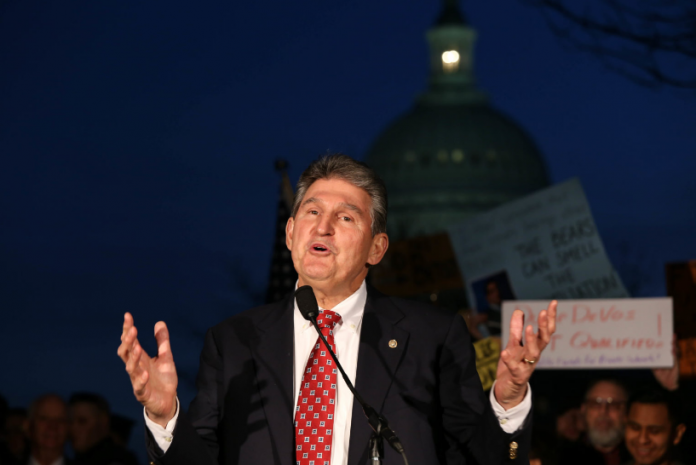In a heavy blow to the roughly $2 trillion Build Back Better bill designed at overhauling U.S. infrastructure, health care, education, climate, immigration, and more, Sen. Joe Manchin (D-WV) commented that he “cannot vote” for the legislation in its current form.
The holdout came as Manchin cited rising inflation, consumer prices, increasing federal debt, and the arrival of the COVID-19 virus’ Omicron variant as reasons he would not support the bill.
Democrats voiced their displeasure for Manchin’s decision, saying that his negotiations were not in good faith. The Biden bill had been scaled back from original ambitions to earn the senator’s vote. White House press secretary Jen Psaki said the senator’s comments are “at odds with his discussion this week with the President, with White House staff, and with his own public utterances.”
Manchin’s step back represents a hurdle for Democrats looking to pass the legislation, as total support of Democrats would be needed to perform reconciliation, a process that allows for the bypass of the impending Republican filibuster. In recent weeks, Manchin has argued for a price tag under $1.75 trillion, down from the current design of $2 trillion, and less than half the original design of $3.5 trillion.
Psaki responded to Manchin’s and Republican concerns, arguing that the $2 trillion deal would not drive further inflation, but instead would offer relief. She reiterated that the spending initiated by the bill would be fully financed through tax policy changes, adding nothing to the federal deficit.
The Build Back Better Act would have included a record $550 billion for climate measures, including tax credits for the domestic manufacture of solar, upfront consumer rebates, and much more.
In a statement on the issue, Manchin’s office said, “In the last two years, as Chairman of the Senate Energy and Natural Resources Committee and with bipartisan support, we have invested billions of dollars into clean energy technologies so we can continue to lead the world in reducing emissions through innovation. But to do so at a rate that is faster than technology or the markets allow will have catastrophic consequences for the American people like we have seen in both Texas and California in the last two years.”
U.S. solar stocks were stung hard by the news on Monday morning. At the time of writing, First Solar has fallen 8%, Sunrun nearly 7%, SunPower roughly 7%. International solar stocks took the news hard as well, with SolarEdge down nearly 10%, and Enphase nearly 7%.
Senate budget committee Bernie Sanders (I-VT) said, “[Manchin]… is going to have to explain to the people of West Virginia why he’s rejecting what the scientists of the world are telling us: that we have to act boldly and transform our energy systems to protect future generations from the devastation of climate change.”
The White House commented that it will continue to negotiate to win Sen. Manchin’s vote at the $2 trillion proposal level.






